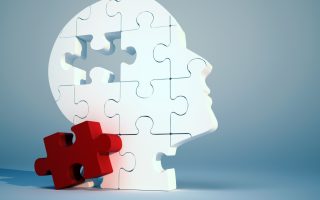
Cognitive decline doesn’t happen overnight—it builds slowly through daily habits that either protect or weaken brain health. Seniors often focus on diet and exercise but overlook small routines that quietly erode memory and focus. These habits may seem harmless, yet over time, they accelerate decline. Awareness is the first step toward prevention. By identifying risky behaviors early, retirees can make small adjustments that preserve mental sharpness. Consistent attention to brain health fosters resilience and enables seniors to maintain their independence for longer.
1. Skipping Breakfast
Many seniors frequently overlook the crucial role that a balanced breakfast plays in their overall health. Skipping the first meal of the day deprives the brain of glucose, its primary fuel source, which is essential for optimal brain function. Without proper nourishment in the morning, cognitive functions such as concentration and memory retention may decline over time.
A simple, nutrient-rich breakfast—comprising whole grains, fruits, healthy fats, and proteins—can significantly enhance mental clarity and cognitive resilience. For instance, oatmeal topped with berries and a handful of nuts can provide sustained energy and essential nutrients. By prioritizing a nutritious breakfast, seniors can better support their brain health and improve their quality of life.
2. Excessive Screen Time
Spending hours in front of televisions, tablets, or phones can overstimulate the brain while reducing meaningful engagement and interaction. Seniors who rely heavily on passive screen time may experience cognitive fatigue more quickly. Balanced use of technology, paired with social or physical activity, helps maintain mental sharpness. Limiting screen time also encourages more face-to-face interaction, which strengthens memory and emotional health. By setting boundaries with devices, retirees can enjoy technology without sacrificing cognitive resilience.
3. Lack of Social Interaction
Isolation can significantly increase the risk of cognitive decline, particularly among seniors. When older adults avoid regular social interactions, they miss valuable opportunities to engage their memory and language skills, which are crucial for maintaining cognitive function. Even short conversations, whether with family, friends, or peers, can stimulate brain activity and help reinforce neural connections. Participating in group activities—like book clubs, game nights, or community events—not only enhances social interaction but also contributes to mental agility. In fact, research indicates that social engagement is as vital to brain health as regular physical exercise, highlighting the importance of fostering connections and maintaining an active social life for overall well-being in older adults.
4. Poor Sleep Habits
Inconsistent sleep schedules and frequent late nights can significantly disrupt the brain’s capacity to consolidate memories effectively. For seniors, neglecting proper sleep hygiene—such as maintaining a regular bedtime, establishing a calming bedtime routine, and limiting screen exposure before sleep—can lead to increased forgetfulness and impaired cognitive processing. Research has shown that restorative sleep is vital for preserving cognitive function, as it allows the brain to repair itself and form essential neural connections. Prioritizing consistent and quality rest not only enhances memory retention but can also slow the progression of age-related cognitive decline, leading to improved overall mental well-being. Making sleep a priority is a crucial step for seniors seeking to maintain their cognitive health and daily functioning.
5. Ignoring Hydration
Dehydration has a profound impact on cognitive function, often more than many seniors are aware of. Research indicates that even mild dehydration can lead to decreased focus, impaired memory, and mood fluctuations. This is particularly concerning for seniors, as insufficient fluid intake throughout the day can contribute to a faster rate of cognitive decline. It’s essential for older adults to prioritize hydration, as drinking enough water plays a vital role in maintaining mental clarity and overall brain health. Cultivating the habit of regular fluid intake is a simple yet effective way to protect cognitive function and enhance daily well-being.
6. Multitasking Too Often
While multitasking might appear to be a way to maximize efficiency, research indicates that it can actually overwhelm the brain’s capacity to maintain focus. For seniors, trying to juggle several tasks simultaneously can lead to a significant decrease in long-term memory retention, making it harder to recall important information over time. In contrast, concentrating on a single task at a time fosters improved cognitive performance, enhancing mental clarity and memory. Engaging in mindful focus—being fully present and attentive to one activity—promotes a healthier mental state and reduces the negative effects of constant distractions in our increasingly fast-paced world.
7. Neglecting Physical Activity
Daily movement stimulates blood flow to the brain, supporting memory and learning. Seniors who skip regular walks or light exercise are at a higher risk of faster decline. Even modest activities, such as stretching or gardening, help preserve cognitive health. Physical inactivity accelerates brain aging.
8. Overreliance on Notes and Reminders
While reminders are helpful, seniors who rely exclusively on external cues may weaken their memory skills. Writing everything down without practicing recall reduces the brain’s natural ability to store information. Balancing reminders with memory exercises strengthens retention. Simple techniques like recalling a grocery list from memory or practicing names without notes can keep the brain active. Over time, these small efforts build stronger recall and help preserve independence.
9. Poor Nutrition Choices
Daily diets high in processed foods and sugars fuel inflammation, which harms brain cells. Seniors who overlook nutrition may accelerate decline without realizing it. Incorporating leafy greens, fish, and nuts supports long-term cognitive health. Food choices directly influence brain resilience.
10. Avoiding Mental Challenges
Routine without challenge leaves the brain under-stimulated. Seniors who avoid puzzles, reading, or learning new skills miss opportunities to build neural pathways. Mental challenges keep the brain flexible and resistant to decline. Growth-oriented routines protect memory.
11. Ignoring Stress Management
Chronic stress quietly erodes brain health by flooding the body with hormones like cortisol that interfere with memory and focus. Seniors who overlook relaxation practices may find themselves more forgetful and less able to concentrate over time. Simple routines such as meditation, deep breathing, or even hobbies like gardening can lower stress levels and protect cognitive function. Managing stress is not just about emotional well-being—it directly supports sharper thinking and stronger resilience. By prioritizing calm and balance, retirees can safeguard their brains against the long-term effects of daily pressures.
Small Habits Add Up
Cognitive decline is influenced not just by age but by overlooked daily routines. Skipping meals, poor sleep, isolation, and inactivity all accelerate memory loss. Seniors who adjust these habits can slow decline and preserve independence. Protecting brain health starts with everyday choices.
Have you noticed any routines that affect your memory? Share your experience—it could help others stay sharp.
You May Also Like…
- 5 Ways to Keep Your Memory Sharp After Retirement
- Widowhood Speeds Up Memory Loss: What Experts Are Finding
- What Aging in the Same House for 40 Years Does to Your Finances, Health and Memory
- The Outrageous Cost of Memory Care Assisted Living and 8 Ways To Avoid It!
- How Memory Loss Can Affect Your Finances

Teri Monroe started her career in communications working for local government and nonprofits. Today, she is a freelance finance and lifestyle writer and small business owner. In her spare time, she loves golfing with her husband, taking her dog Milo on long walks, and playing pickleball with friends.



Comments